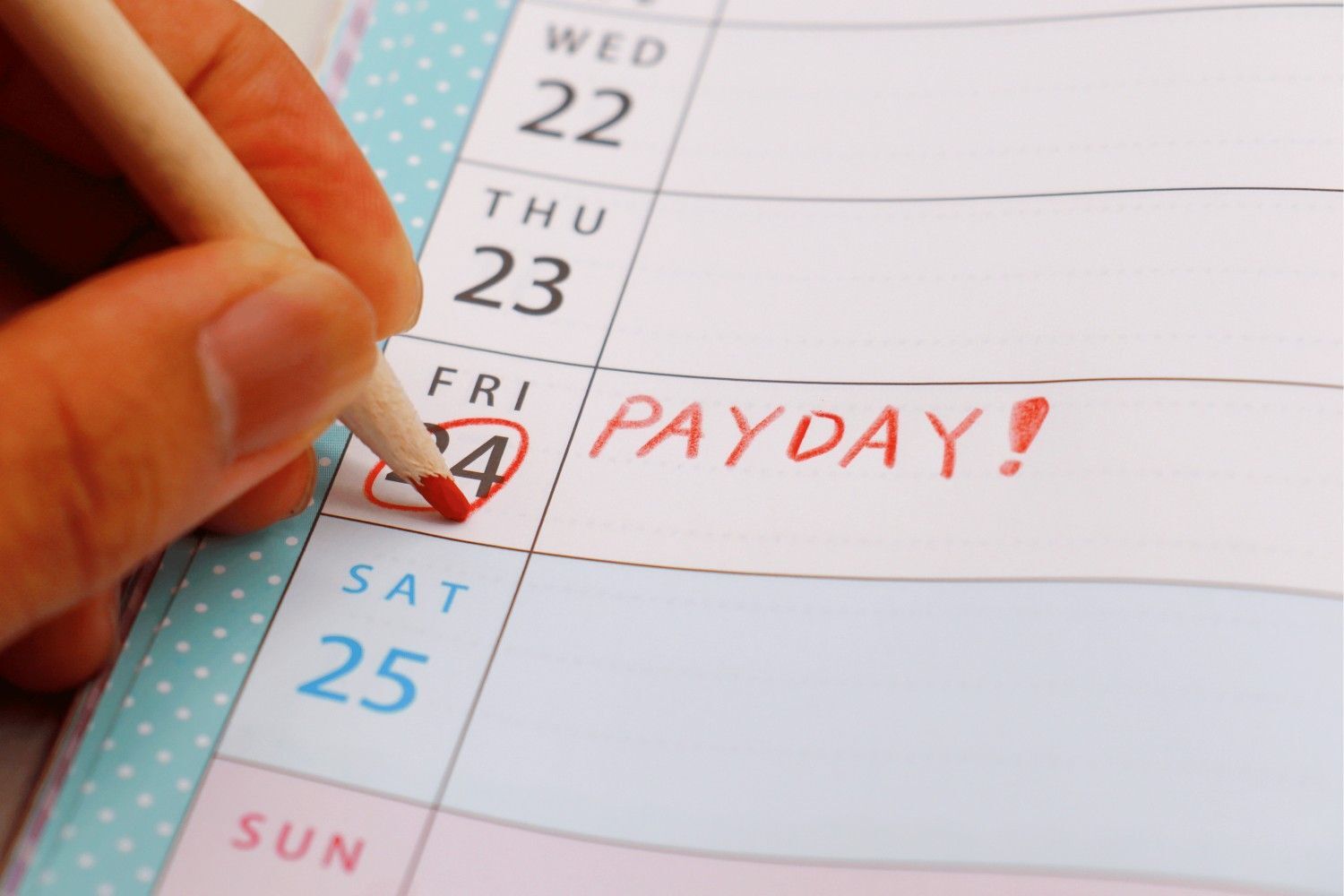What Happens If You Get Caught Working Cash in Hand?

It’s no secret that running a small business is stressful. There’s always something that needs to be done, whether it’s ordering inventory, dealing with customers, or managing employees. And one of the most stressful things for any business owner is payroll. Employees need to be paid on time and correctly, which can be a lot of pressure for business owners who are already juggling a million other things. Many smaller employers therefore ask the question, is cash in hand illegal?
Are Cash in Hand Payments Legal in the UK?
In the United Kingdom, it is not illegal to pay someone in “cash in hand” for services rendered. However, there are income tax implications for both the person receiving the payment and the person making the payment. Whilst you can still pay ‘cash’ to employees both parties are required to complete PAYE / HMRC obligations.
For the person who accept cash, if they are self-employed, they are required to declare their income from cash-in-hand settlements or paid cash on their annual tax return. If they fail to do so, they may be subject to penalties from HM Revenue & Customs (HMRC).
For the Company paying employees in cash, they are required to deduct Income Tax and National Insurance contributions from any cash-in-hand settlements made to employees. If they fail to do so, they may also be subject to penalties from HMRC.
The Inland Revenue’s guidance, Tax on cash payments to employees, explains the rules and penalties that apply. For information on how to administer these rules see the HMRC web page Cash in hand – payroll considerations.
Rules That an Employer Must Operate If He Does Cash in Hand Payments
If you’re an employer who wants to start accepting cash hand payments from customers, there are a few things you need to know. For one, you’ll be responsible for any tax liabilities that come with the cash. Secondly, you’ll need to have a system in place for paying your employees in cash. Here are a few things to keep in mind if you’re thinking of going the cash-only route:
- You’ll need to report any cash payments you receive to HMRC. This includes keeping track of how much money you take in and ensuring that all of your taxes are paid on time.
- You’ll need to have a system in place for paying your employees in cash. This means keeping accurate records of hours worked and ensuring that everyone is paid the correct amount.
- You’ll need to make sure that you don’t inadvertently discriminate against any employees.
- You’ll need to consider the possibility of theft or robbery. If you’ll be holding large amounts of cash on hand, you may want to invest in security measures like safes and surveillance equipment. You’ll need to make sure that your business is properly insured.
- You’ll need to consider your legal obligations regarding all of the employees that you have and whether or not you’re meeting them.
- You will need to make the necessary returns to HMRC reporting the employees earnings and the tax and National insurance etc deducted.
- You are still required to provide employees with an auto-enrolment pension and would need to enroll staff into a scheme.
- Employees are still legal entitled to payslips.
What About absence and statutory benefits?
In the United Kingdom, employers are required to provide statutory sick pay, statutory maternity leave pay, paternity leave and paid annual leave etc to their employees. This does not change just because an employer is paying employees in cash.
What Are the Tax Implications of Making Cash in Hand Payments for Employers?
There are a few tax implications to be aware of when making cash-in-hand payments for employers in the United Kingdom to avoid a common misconception. For one, it’s considered tax evasion and could lead to hefty fines. Additionally, the money may not be properly accounted for in the company’s books, which could create problems come tax time. With this in mind, make sure you’re aware of your employer’s tax responsibilities and that you’re keeping good records yourself.
That being said, there are some advantages to paying cash in hand. It’s often faster and easier than going through the proper channels and can save on administrative costs. Just be sure to weigh the pros and cons before making any decisions.
How Can Employees Legally Pay Tax and Ni Contributions on Cash Earned?
There are a few different ways that employees can legally pay their taxes and national insurance (NI) contributions on cash earned.
The first way is through the PAYE system, where tax and NI is deducted from an employee’s gross pay before they receive their net income.
The second way is for self-employed workers to calculate and pay their own tax and NI contributions at the end of the year.
How Do Employees Claim Benefits If Paid in Cash?
In the United Kingdom, many small business owners choose to pay their employees in cash. However, it can also create problems for employees when it comes time to claim benefits.
The tax system in the UK is designed to allow employees to claim certain benefits if they are paid in cash. However, many small business owners are not aware of this and do not provide their employees with the necessary documentation. As a result, employees may find themselves unable to claim the benefits that they are entitled to.
There are a few things that employees can do if they think they have been paid in cash illegally. First, they should try to get in touch with their employer and ask for the appropriate documentation. If the employer refuses, then the employee should contact the HMRC to see if they can get some help. If all else fails, employees can try to take their employers to court.

What Are the Penalties or Fines for Not Declaring Cash in Hand Payments?
In the United Kingdom, employers can be charged penalties and fines for not declaring cash in hand payments. If the Inland Revenue discovers that you have failed to declare cash-in-hand payments, they may impose a range of sanctions, including interest and penalties.
The Inland Revenue is able to deduct money from your bank account or wages if you owe them money. They can also take legal action against you, which could result in a court order to pay the money you owe plus interest and costs.
If you are found guilty of tax evasion, you could face a prison sentence of up to seven years. In addition to the above, it is also an offence not to declare any income that you have received. In the UK, if you do not declare all of your income, you could be fined up to £3000.
If you are caught by the Inland Revenue, they may impose a penalty of up to 100% of the tax due. If you have received income from abroad, you must declare it to the Inland Revenue. The penalties for not doing so could be very severe.

Conclusion
Small businesses already have a lot to stress about, and then it’s the employee’s payroll each month. Payroll can be a pain for small business owners, but there are some ways to make your online payroll services less stressful. First, make sure you have good accounting software that can handle payroll. Second, find an amazing payroll outsourcing service to outsource your payroll to a company. Dhpayroll has years of experience in handling payroll and can save you time and money.
Finally, stay organized and keep good records. Don’t worry we got you covered on this one too. As we provide monthly reports for your clarity on finances. Plus we offer bookkeeping services, so you can focus on what matters.




.png)
.png)



Comments